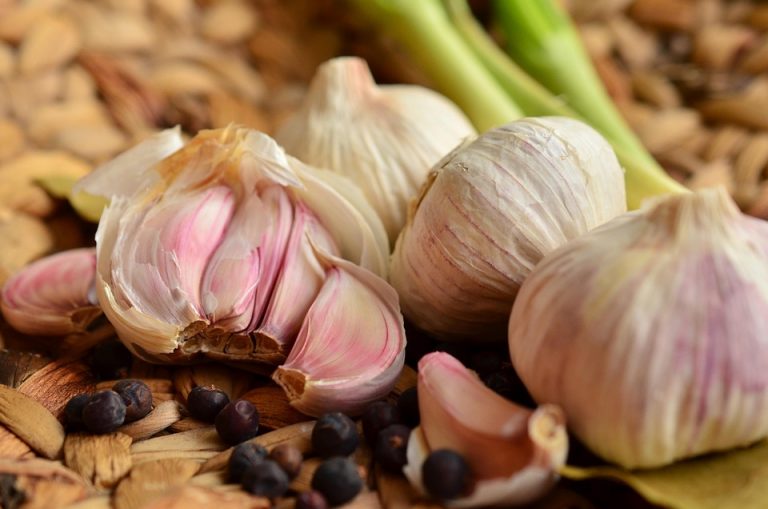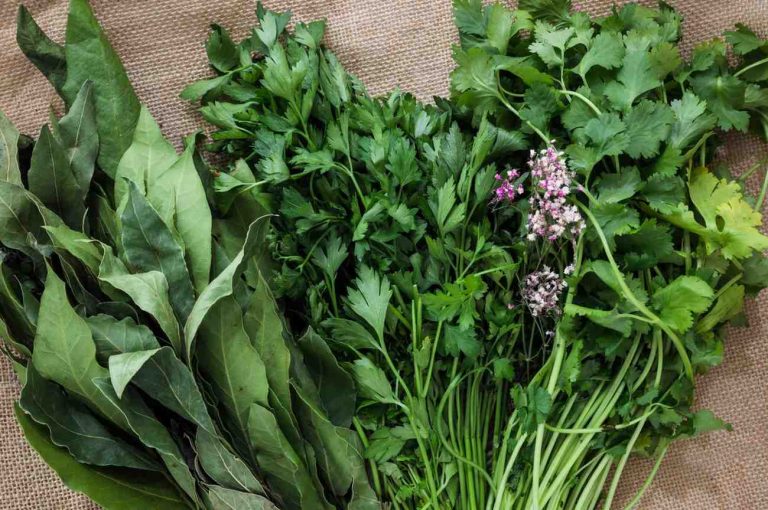Inflammation fighting herbs are the secret superheroes that can transform your kitchen into a powerhouse of health. If you’ve ever felt sluggish, had unexplained aches, or even skin issues, inflammation might be the culprit. Understanding how inflammation impacts your body is essential, and integrating the right herbs into your diet can make a world of difference.
Contents
- What Is Inflammation and Why Should You Care?
- 1. Turmeric: The Golden Warrior
- 2. Ginger: The Zesty Anti-Inflammatory
- 3. Garlic: The Flavorful Defender
- 4. Cinnamon: The Sweet Spice
- 5. Rosemary: The Aromatic Ally
- 6. Basil: The Fresh Healer
- 7. Cayenne Pepper: The Fiery Fighter
- Bringing It All Together: How to Incorporate These Herbs
- Bottom Line
- FAQs
What Is Inflammation and Why Should You Care?
Inflammation is your body’s natural response to injury or infection. It’s a protective mechanism, but when it becomes chronic, it can lead to serious health issues like heart disease, diabetes, and even cancer. You might be feeling the effects without even realizing it. When we talk about inflammation, we’re not just referring to swelling; we’re talking about a complex interplay of immune responses that can wreak havoc on your body.
So, why does this matter to you? Because managing inflammation through diet can empower you to take control of your health. And what better way to start than by incorporating powerful herbs right from your kitchen? Let’s dive into the seven inflammation fighting herbs you need in your kitchen now.
1. Turmeric: The Golden Warrior
Turmeric is often referred to as the gold standard of anti-inflammatory herbs. Its active compound, curcumin, is a potent anti-inflammatory and antioxidant powerhouse.
- Benefits: It helps reduce the symptoms of arthritis, supports heart health, and may even enhance brain function.
- How to Use: Sprinkle turmeric on roasted vegetables, mix it into smoothies, or brew it into a comforting tea.
Research suggests that curcumin can be as effective as some anti-inflammatory drugs, but without the side effects (Harvard Health).
2. Ginger: The Zesty Anti-Inflammatory
Ginger is not just for your favorite ginger tea; it’s a fantastic anti-inflammatory herb that has been used for centuries.
- Benefits: It aids digestion, reduces nausea, and helps with muscle soreness after workouts.
- How to Use: Grate fresh ginger into stir-fries, blend it into smoothies, or steep it in hot water for a soothing tea.
Studies have shown that ginger can significantly reduce inflammation markers in the body (National Institutes of Health).
3. Garlic: The Flavorful Defender
Garlic is not just a culinary delight; it’s a robust herb that boasts anti-inflammatory properties.
- Benefits: It enhances immune function, lowers blood pressure, and improves cholesterol levels.
- How to Use: Use fresh garlic in sauces, dressings, or roasted dishes to not only boost flavor but also health.
Research indicates that garlic’s active compounds can inhibit inflammation pathways in the body (WebMD).
4. Cinnamon: The Sweet Spice
Cinnamon may bring back memories of cozy winter evenings, but its benefits go far beyond flavor.
- Benefits: This aromatic spice can lower blood sugar levels and has anti-inflammatory and antioxidant properties.
- How to Use: Sprinkle cinnamon in your morning oatmeal, coffee, or yogurt for a tasty health boost.
Studies reveal that cinnamon can reduce inflammation markers in the body, making it a sweet addition to your diet (American Journal of Clinical Nutrition).
5. Rosemary: The Aromatic Ally
Rosemary is more than just a delightful herb for your roasted chicken; it’s a powerful anti-inflammatory agent.
- Benefits: It improves digestion, enhances memory, and has mood-lifting properties.
- How to Use: Add fresh rosemary to soups, stews, or even homemade bread.
Research shows that the compounds in rosemary can help combat inflammation and oxidative stress (Journal of Medicinal Food).
6. Basil: The Fresh Healer
Basil, particularly holy basil or Tulsi, is revered not only for its flavor but also for its healing properties.
- Benefits: It reduces stress, boosts immunity, and has potent anti-inflammatory effects.
- How to Use: Toss fresh basil into salads, pastas, or use it in pesto for a refreshing touch.
Studies suggest that basil can lower inflammatory markers and support overall wellness (Journal of Ethnopharmacology).
7. Cayenne Pepper: The Fiery Fighter
Cayenne pepper isn’t just for the brave; it’s a fiery herb that can help reduce inflammation.
- Benefits: It promotes circulation, aids digestion, and can soothe pain.
- How to Use: Add a pinch of cayenne to soups, sauces, or even chocolate for an unexpected kick.
Research indicates that capsaicin, the active component in cayenne, can effectively reduce pain and inflammation in the body (Journal of Pain Research).
Bringing It All Together: How to Incorporate These Herbs
Now that you know the inflammation fighting herbs you need in your kitchen, how can you seamlessly incorporate them into your daily routine? Here are some practical tips:
- Herb Infusions: Create herb-infused oils or vinegars to use in dressings or marinades.
- Spice Blends: Mix several of these herbs into a custom spice blend to enhance your meals.
- Smoothies and Juices: Add fresh ginger, turmeric, or cayenne to your morning smoothies for a spicy kick.
- Herbal Teas: Steep fresh herbs like ginger and turmeric in hot water for a soothing tea.
Bottom Line
Integrating these inflammation fighting herbs into your kitchen can be a game changer for your health. Not only do they add flavor to your meals, but they also provide a wealth of health benefits that can help you feel your best. So why not start today? Grab a few of these herbs and let them work their magic on your body.
FAQs
1. Can I take these herbs in supplement form?
While supplements can be effective, fresh herbs in your diet provide additional nutrients and benefits. Always consult with a healthcare provider before starting any new supplement.
2. How quickly can I expect to see results?
Results can vary from person to person. Incorporating these herbs into your diet regularly can lead to noticeable improvements in inflammation and overall health within a few weeks.
3. Are there any side effects to these herbs?
Generally, these herbs are safe for most people when used in culinary amounts. However, excessive consumption may lead to digestive issues or interact with certain medications. Always consult your doctor if you have concerns.
Start your journey to a healthier you today by embracing these inflammation fighting herbs. Your body will thank you!
Get Your FREE Natural Health Guide!
Subscribe now and receive our exclusive ebook packed with natural health tips, practical wellness advice, and easy lifestyle changes, delivered straight to your inbox.





